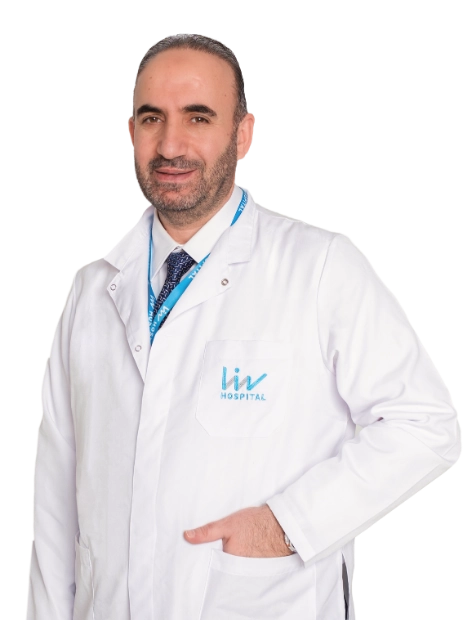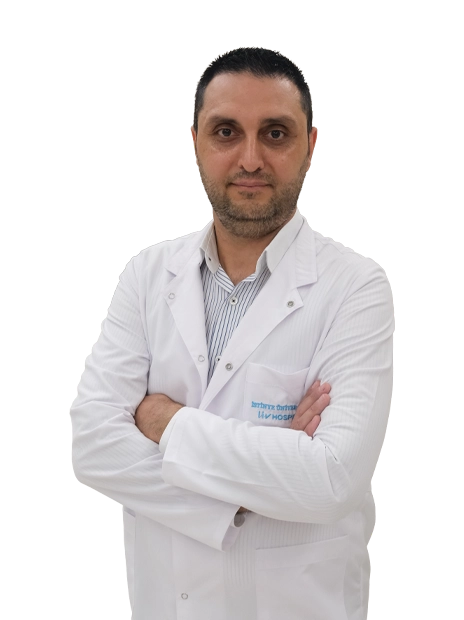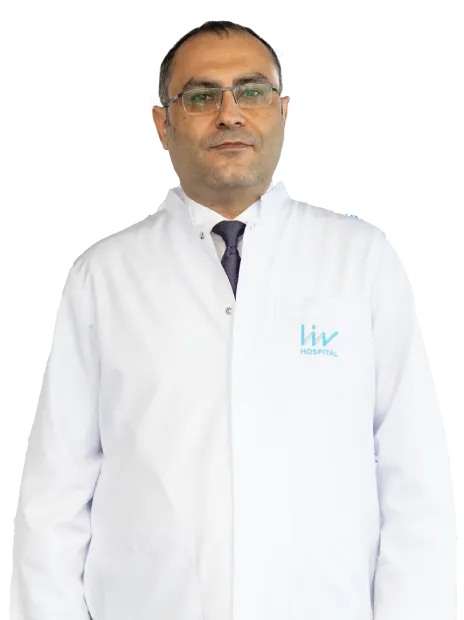
Feeling stuck with digestive problems can really get you down. If you’re dealing with ongoing stomach pain, constant diarrhea, or trouble swallowing, you might need to see a specialist. They’re experts in the digestive system.
Digestive issues can really mess with your life. Agastroenterologist can help with many problems. This includes changes in bowel habits, acid reflux, and inflammatory bowel disease.
If you’re dealing with these symptoms, getting help from a specialist is key. With over 350 million people worldwide facing gut problems, knowing when to ask for help is vital.
Key Takeaways
- Digestive symptoms such as abdominal pain and chronic diarrhea may require a visit to a gastroenterologist.
- A gastroenterologist diagnoses and treats various digestive disorders, including GERD and IBD.
- Seeking specialized care is essential for addressing gastrointestinal challenges.
- Common conditions treated by gastroenterologists include irritable bowel syndrome (IBS) and pancreatitis.
- Understanding when to seek help is critical for managing digestive issues effectively.
Common Symptoms That Warrant a Gastroenterologist Referral
Persistent digestive symptoms often mean you need a gastroenterologist. Chronic or severe stomach issues need a specialist’s care. Knowing when to see a gastroenterologist is key.
Persistent Abdominal Pain and Discomfort
Abdominal pain that keeps coming back is a red flag. Gastroenterologists say it might be linked to GI disorders like IBS or IBD.
Chronic Diarrhea or Constipation
Long-term diarrhea or constipation can really affect your life, says chronic diarrhea might point to IBS, IBD, or SIBO. Constipation has many causes, and a GI specialist can help find the reason and suggest treatments.
| Symptom | Possible Causes | Specialist’s Role |
| Persistent Abdominal Pain | IBS, IBD, Other GI Disorders | Diagnosis and Treatment Planning |
| Chronic Diarrhea | IBS, IBD, SIBO | Identifying Cause and Treatment |
| Chronic Constipation | Various Causes | Lifestyle Advice and Medication |
Gastrointestinal Bleeding
Gastrointestinal bleeding is a serious issue that needs quick medical help. It shows as black, tarry stools or blood in the stool. Gastroenterologists can find the source and treat it to avoid more problems.
Unexplained Weight Loss
Unexplained weight loss can signal a serious problem, like digestive system diseases. A gastroenterologist can figure out why you’re losing weight and help you get back on track.
It’s important to recognize these symptoms early. If you’re dealing with any of these, seeing a gastroenterologist is a good step. They can help you find out what’s wrong and how to fix it, improving your digestive health.
Digestive Conditions Diagnosed by a Gastroenterologist

The digestive system faces many disorders, and gastroenterologists lead in diagnosing and treating them. These disorders can greatly affect a person’s life, making a quick and correct diagnosis key.
Gastroesophageal Reflux Disease (GERD)
Gastroesophageal reflux disease, or GERD, is a long-term issue where stomach acid moves up into the esophagus. This causes heartburn and discomfort. GERD can lead to complications if not treated, such as esophagitis and Barrett’s esophagus.
Common GERD symptoms include:
- Persistent heartburn
- Difficulty swallowing
- Regurgitation of food
- Chest pain
Celiac Disease and Food Intolerances
Celiac disease is an autoimmune disorder that makes the immune system react to gluten. This damages the small intestine. Unlike food intolerances, celiac disease can cause serious damage if not managed properly.
Key differences between celiac disease and food intolerances are:
- Celiac disease is an autoimmune reaction, while intolerances are about the body not digesting certain foods well.
- Celiac disease needs a strict gluten-free diet, while some intolerances might be managed with dietary changes or enzyme supplements.
Accurate diagnosis of these conditions is vital for effective management and preventing complications. Gastroenterologists are key in this, using clinical evaluation, diagnostic tests, and patient history to find the best treatment.
The Role of a Gastroenterologist in Cancer Screening

Cancer screening is key in gastroenterology. It greatly affects survival rates and treatment success. Gastroenterologists are vital in finding and stopping gastrointestinal cancers, like colorectal cancer.
Why the Screening Age Has Dropped to 45
The age for colorectal cancer screening has been lowered to 45. This change adds 19 million more Americans to the screening group. It’s because more young adults are getting colorectal cancer.
Early detection is key. It means less severe treatment and a better survival chance.
More cases of colorectal cancer are happening in people under 50. This shows we need to start screening earlier. Gastroenterologists lead this effort, doing colonoscopies and finding cancer early.
| Age Group | Previous Screening Recommendation | New Screening Recommendation |
| 45-49 | No routine screening recommended | Screening recommended |
| 50+ | Screening recommended | Screening recommended |
Upper GI Cancer Detection and Prevention
Gastroenterologists also fight upper GI cancers, like esophageal and gastric cancers. Regular endoscopies spot precancerous lesions and early cancers. This improves treatment success.
They understand risks for upper GI cancers. This includes chronic gastroesophageal reflux disease (GERD) and Helicobacter pylori infection. They offer specific screening and prevention plans.
We aim to give full care for digestive issues. With the latest in gastroenterology, we aim to better detect and treat gastrointestinal cancers.
Understanding the Global Demand for Gastroenterology Care
Nearly 350 million people face gastrointestinal challenges every year. This makes the need for specialized gastroenterology care higher than ever. Digestive disorders range from common issues like digestive symptoms to severe diseases like gastrointestinal cancers.
There’s a big need for accessible gastroenterology care. Places like LivHospital are working hard to help. They provide care for patients with digestive problems, symptoms of chronic diarrhea, a nd constipation.
350 Million People with Digestive Disorders Worldwide
The number of people with digestive disorders is huge. It affects people of all ages and backgrounds. This shows how big the problem is and why we need strong healthcare to handle it.
“The global burden of digestive diseases is significant, affecting people of all ages and backgrounds.”
Healthcare providers are improving their gastroenterology departments. They’re also focusing on preventive care and teaching patients. By understanding digestive issues symptoms early, we can improve patient outcomes and quality of life.
Institutions like LivHospital play a key role. They offer advanced treatments and support research in gastroenterology. Their work helps advance the field and ensures patients get the best care for their digestive problem symptoms.
In conclusion, the need for gastroenterology care worldwide is urgent. We must keep investing in healthcare to help the 350 million people with digestive disorders. Together, we can make a big difference in their lives.
Finding a Gastroenterologist: Access and Availability
There are nearly 18,756 active gastroenterologists in the U.S., but finding one can be tough. The specialists are not spread out evenly, making it hard for many to get the care they need.
The Current State of Gastroenterology Care in America
The U.S. has a lot of gastroenterologists. But many people struggle to find one. Almost 50 million Americans face challenges in getting to a gastroenterologist, showing a big gap in healthcare.
The number of older people is growing. This means more people need gastroenterology services. With 40% of GI patients over 60, the demand is high.
Rural vs. Urban Access to Specialists
Getting to a gastroenterologist is harder in rural areas. There are fewer specialists there. This makes it tough for rural residents to get the care they need for their GI problems.
“The maldistribution of gastroenterologists, with a higher concentration in urban areas, exacerbates healthcare disparities and complicates access to specialized care for rural populations.”
Healthcare systems are trying new ways to help. Telemedicine is being used to reach more people.
The Aging Gastroenterologist Workforce
The gastroenterologists are getting older. Many are close to retiring. This makes it hard to keep up with the growing demand for care.
To solve this, there’s a push to bring in new gastroenterologists. But this takes time. In the meantime, using nurse practitioners and physician assistants is being considered.
Conclusion
Gastroenterologists are key in managing digestive health. They diagnose symptoms and treat complex conditions like stomach diseases and GI ailments. The need for their care is high, thanks to widespread digestive system diseases.
They are vital in cancer screening and treatment. Their skills are essential for our health. Yet, getting to see a gastroenterologist can be hard, mainly in rural areas or because of an aging workforce.
We must tackle these issues to improve access to gastroenterology services. This way, people can get the care they need for their digestive health. It will greatly improve their quality of life.
FAQ’s:
What are the common symptoms that may require a visit to a gastroenterologist?
Symptoms like persistent stomach pain and chronic diarrhea or constipation are common. Gastrointestinal bleeding and unexplained weight loss also need attention. These signs often point to serious digestive problems that need a specialist’s care.
What is gastroesophageal reflux disease (GERD) and how is it managed?
GERD happens when stomach acid flows back into the esophagus, causing heartburn. To manage it, you might need to change your diet and lifestyle. Sometimes, medications or surgery are needed to help switch symptoms and prevent serious problems.
Why is cancer screening important, and what role do gastroenterologists play in it?
Screening for cancer is key to catching it early. Gastroenterologists are vital in this fight. They help find colorectal and upper GI cancers early. This can greatly improve your chances of survival.
What is the current state of gastroenterology care in America, and what are the challenges?
Gastroenterology care in America faces big challenges. There’s a gap in access to specialists in rural areas. Also, the number of gastroenterologists is aging, which can make it harder to get the care you need.
How can digestive disorders be diagnosed and treated?
Gastroenterologists tackle many digestive issues. They use your medical history, tests, and procedures to find the right treatment. This includes conditions like IBS, IBD, and celiac disease.
What are the implications of the global demand for gastroenterology care?
The world’s growing need for gastroenterology care is clear. It shows the importance of accessible, specialized care for the millions facing GI challenges every year.
What are the symptoms of celiac disease and food intolerances?
Symptoms of celiac disease and food intolerances can be quite varied. They might include digestive problems, stomach pain, and other health issues. Getting the right diagnosis and treatment is key to avoiding serious complications.
Why has the screening age for colorectal cancer been lowered to 45?
The age for colorectal cancer screening was lowered to 45 because more young people are getting it. Catching it early is essential for better survival rates.
What are the challenges in accessing gastroenterology care in rural areas?
Rural areas struggle to get gastroenterology care. There’s a lack of specialists, long travel times, and limited resources. These issues make it harder for people in rural areas to get the healthcare they need.
How can individuals maintain digestive health and prevent gastrointestinal issues?
Keeping your digestive system healthy is important. Eat a balanced diet, drink plenty of water, and manage stress. If you have ongoing or severe digestive problems, see a doctor to prevent bigger issues.
References
- De Coster, C., et al. (2011). Criteria for referring patients with outpatient gastrointestinal symptoms. Canadian Journal of Gastroenterology, 25(8), 489-496.https://pubmed.ncbi.nlm.nih.gov/21760792/

































